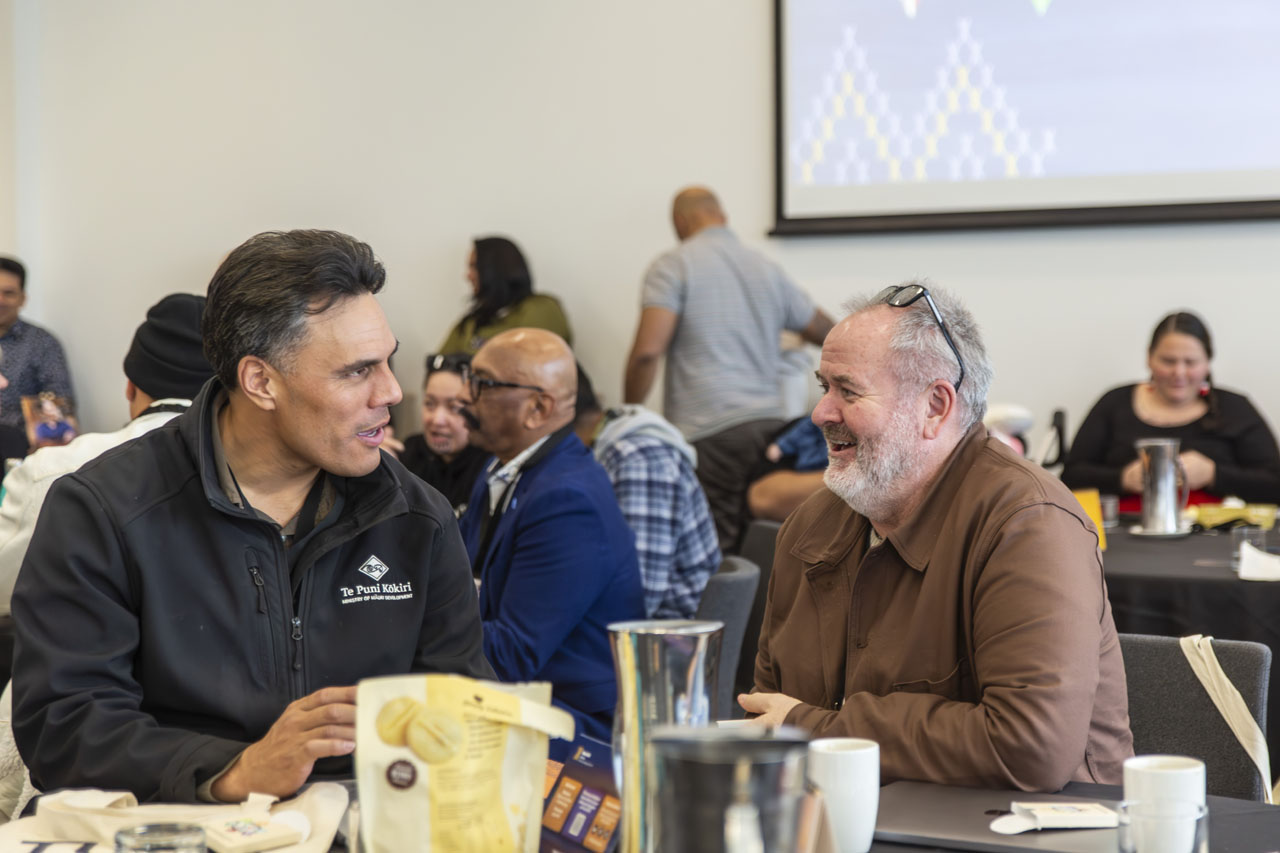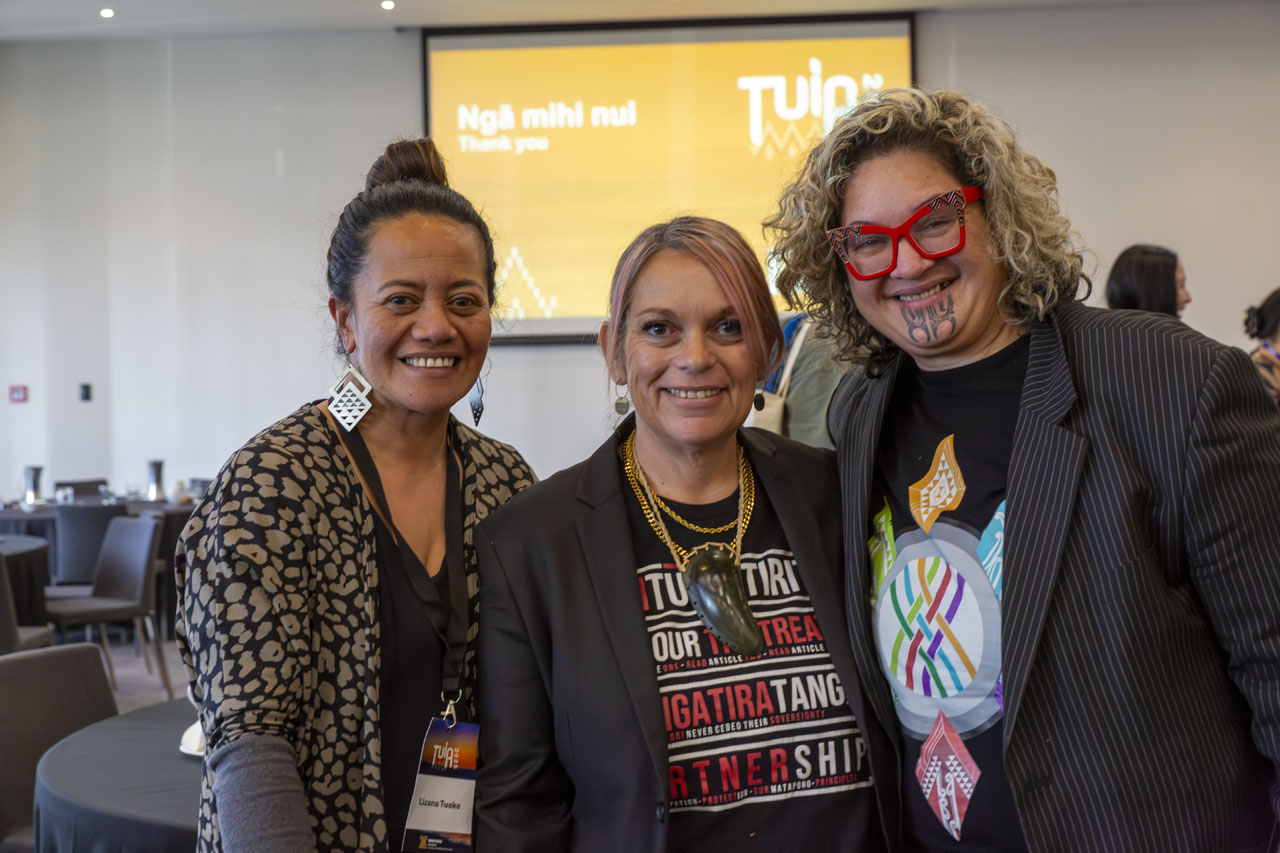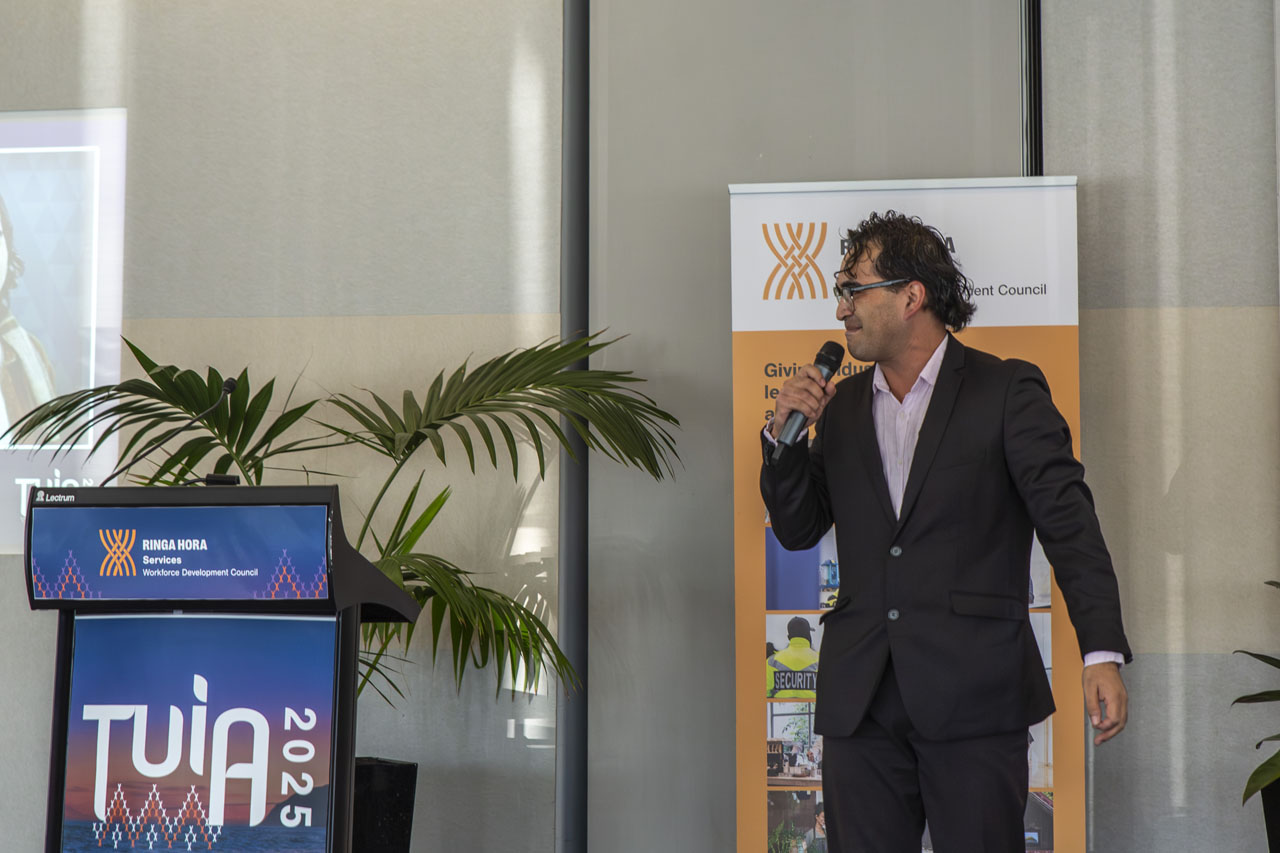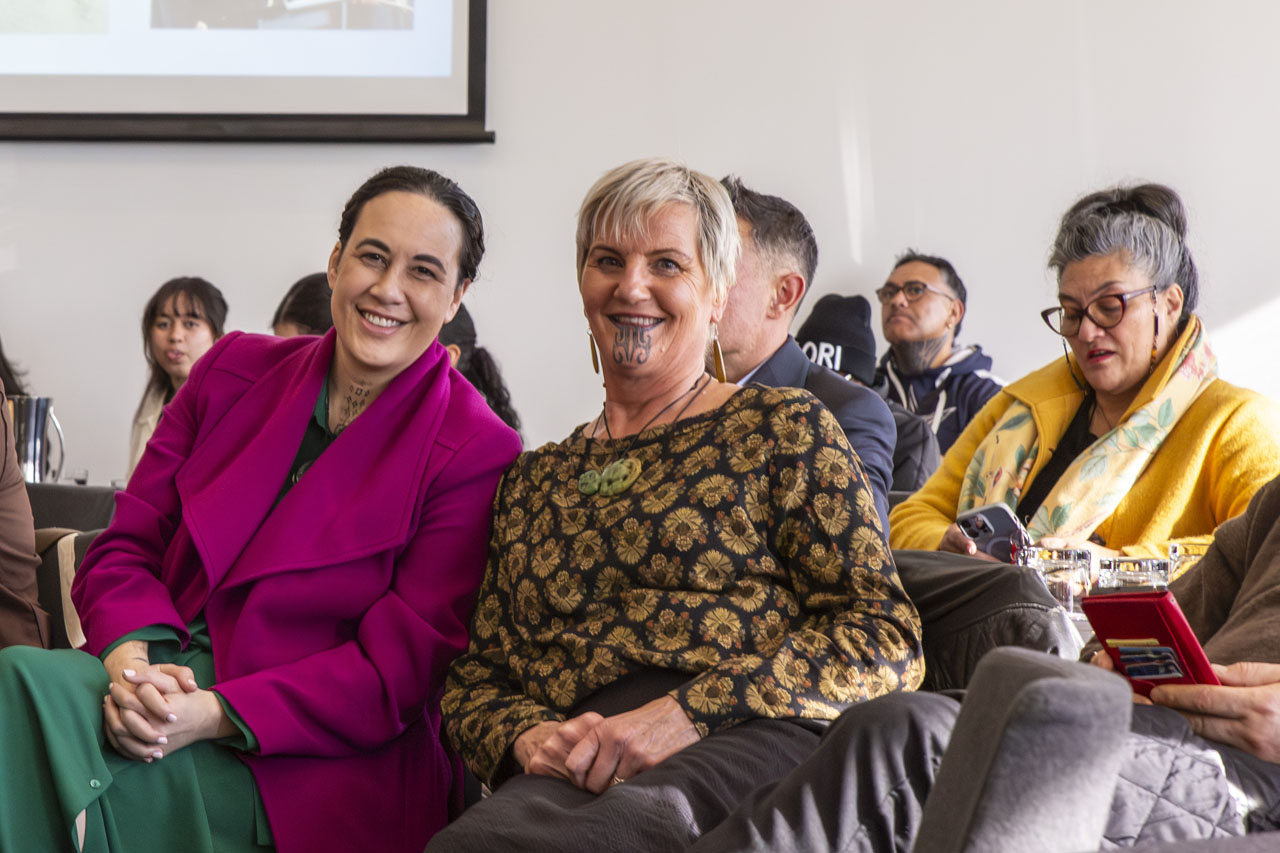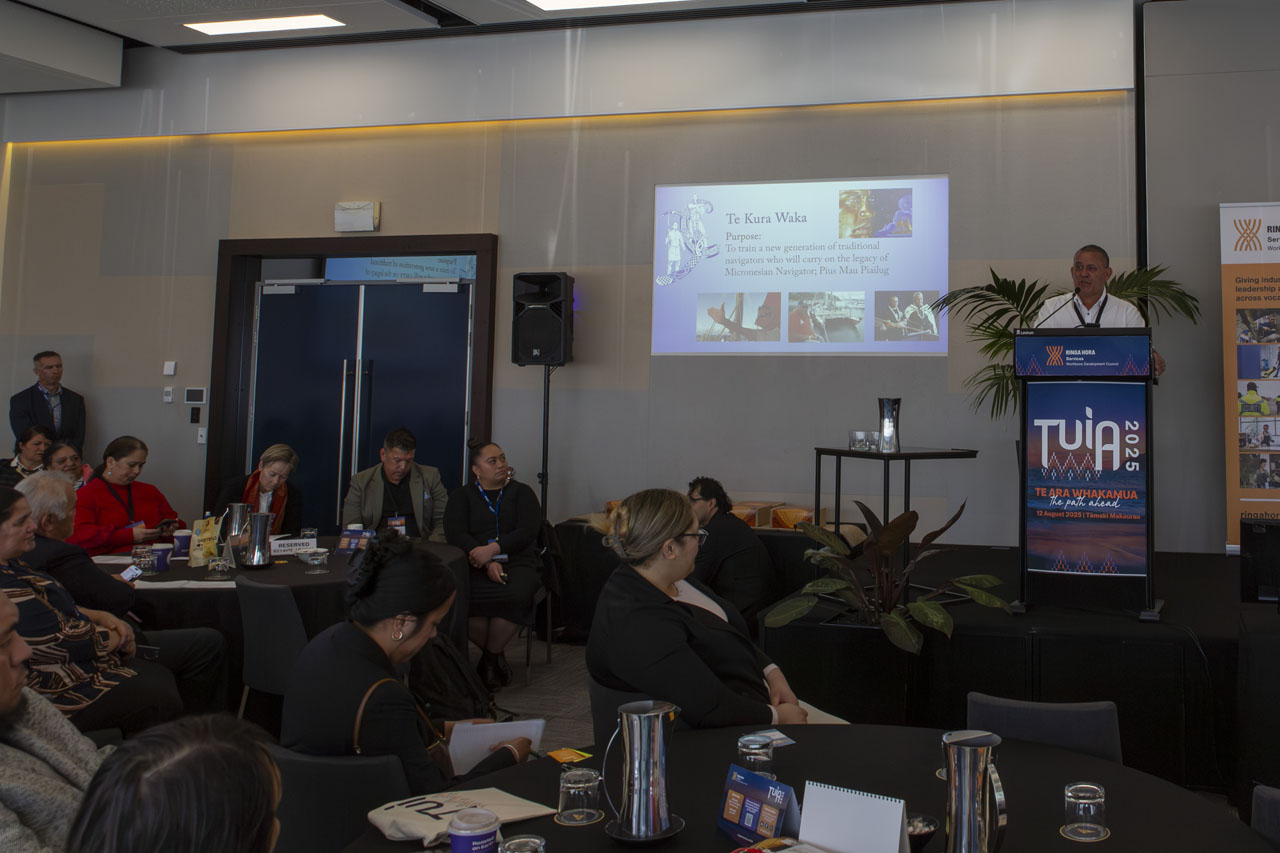
Insight, kōrero, and manaakitanga abounded as a gathering of more than 120 attendees took in Tuia 2025 in Tāmaki Makaurau.
The hui at Jet Park Hotel Conference Centre was themed Te Ara Whakamua | The Path Ahead, and those who attended heard an outstanding collection of speakers talk about ways to develop business and communities among pakihi Māori, kaimahi Māori, and all people.
The day began with a mihi whakatau from mana whenua, Te Ahiwaru, followed by an opening address from Ringa Hora Chair, Hinerangi Edwards (Taranaki Whānui, Te Arawa, Samoa). Our attention then turned with much anticipation for our first keynote speaker, celestial navigator Jack Thatcher. Jack (Ngāti Ranginui, Ngāi Te Rangi, Ngāti Pūkenga, Te Aitanga-a-Hauiti, Ngāti Awa) shared his story of keeping alive the 7,000-year wayfinding traditions by which Pacific people voyaged and settled the Pacific Islands. He described learning the skills himself from the pioneering Micronesian navigator Pius ‘Mau’ Piailug, and how he has passed this learning on to several generations in Aotearoa.
Jack described himself, the navigators he learned from, and those he has taught, as “Ordinary people doing extraordinary things”. He talked about following Pius Mau Piailug’s statement of being the light responsible for the preservation of life, and the value of learning good decision-making. “The great thing about making a bad decision is that you can teach the people after you not to replicate it,” Jack said.
Ringa Hora Chief Executive, Kari Scrimshaw, shared her determination to lead in a values-led approach. In her view, the success of leadership was less about being judged by effectiveness than of being valued. She talked about how values explain not only who you are, but also who you are not, and how culture blooms and strategy evolves when leadership starts with values.
“Walking with values gives purpose, and purpose creates value,” Kari says, “Values are not a nice-to-have, they are what others value in you.”
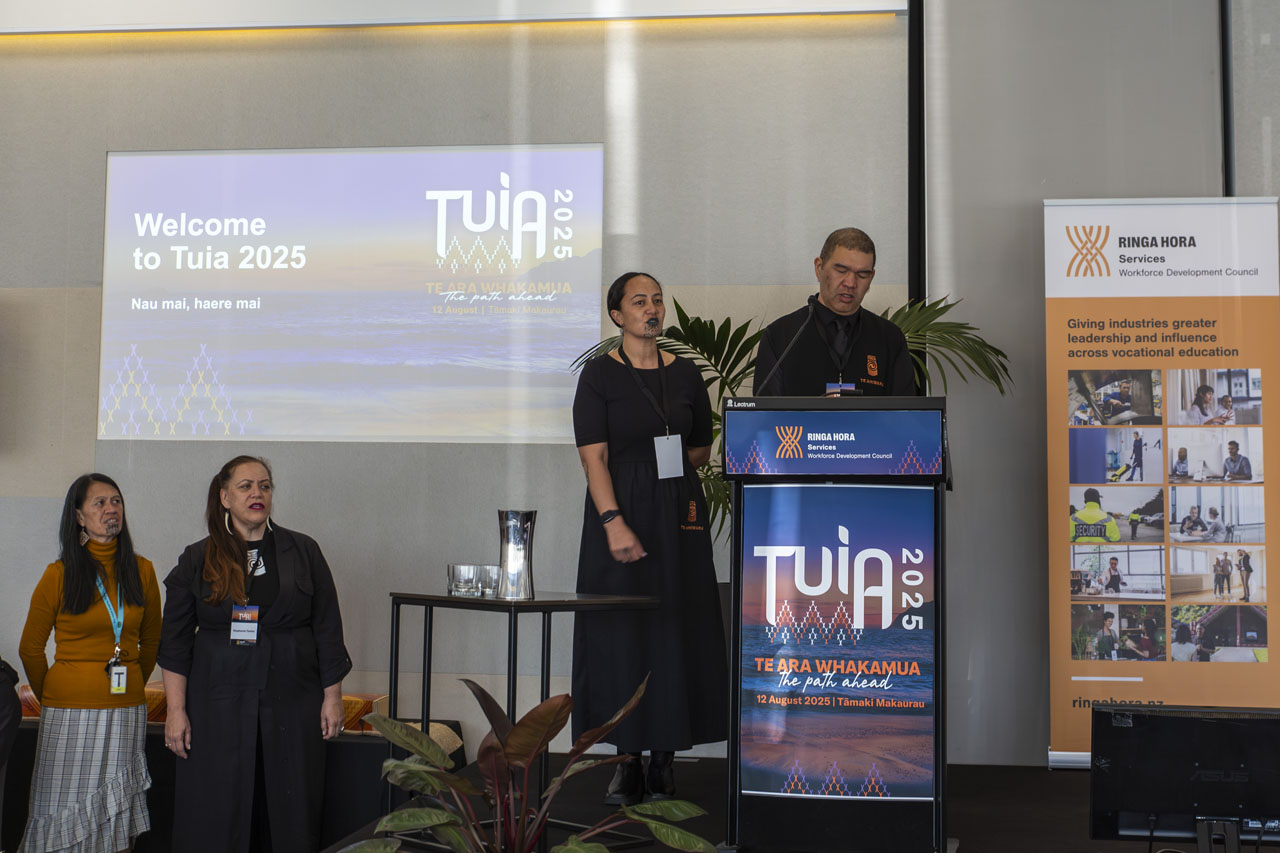
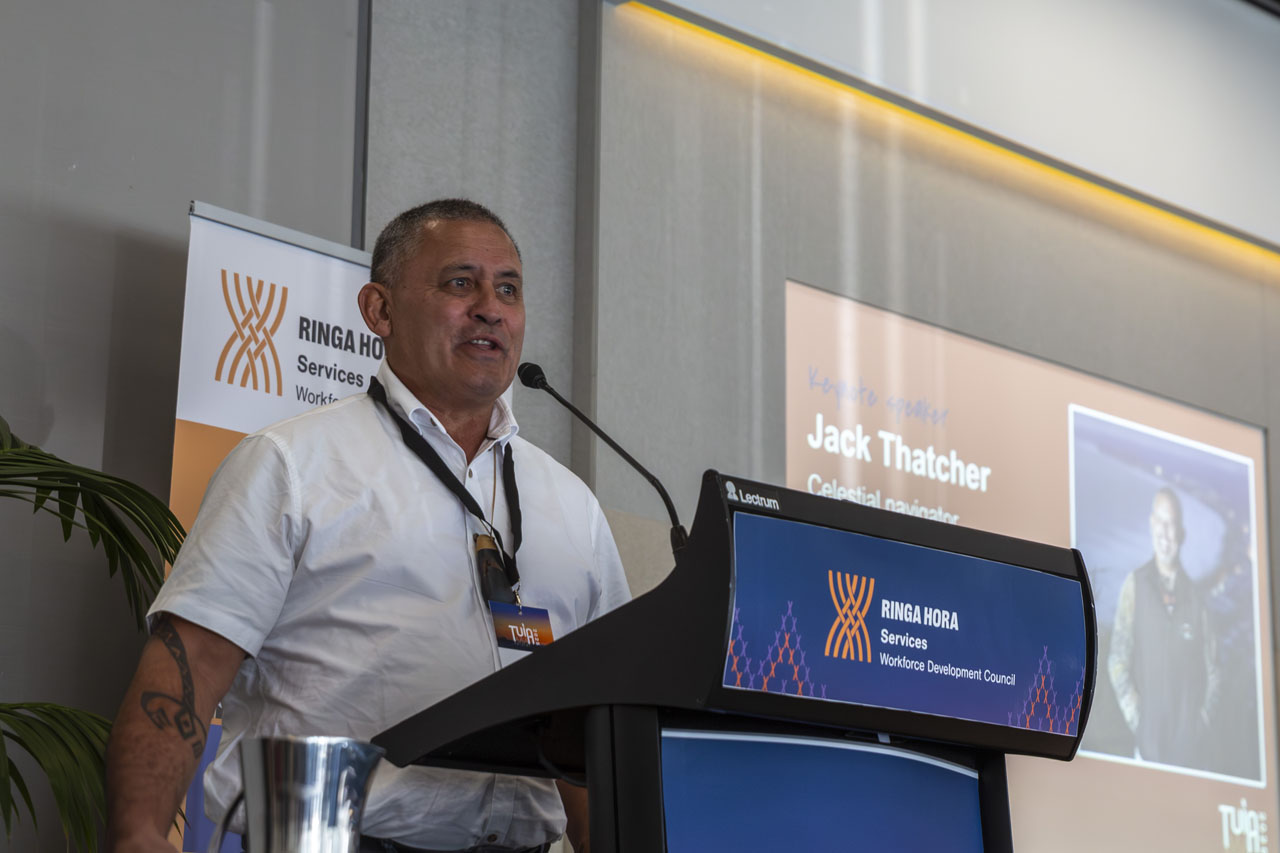
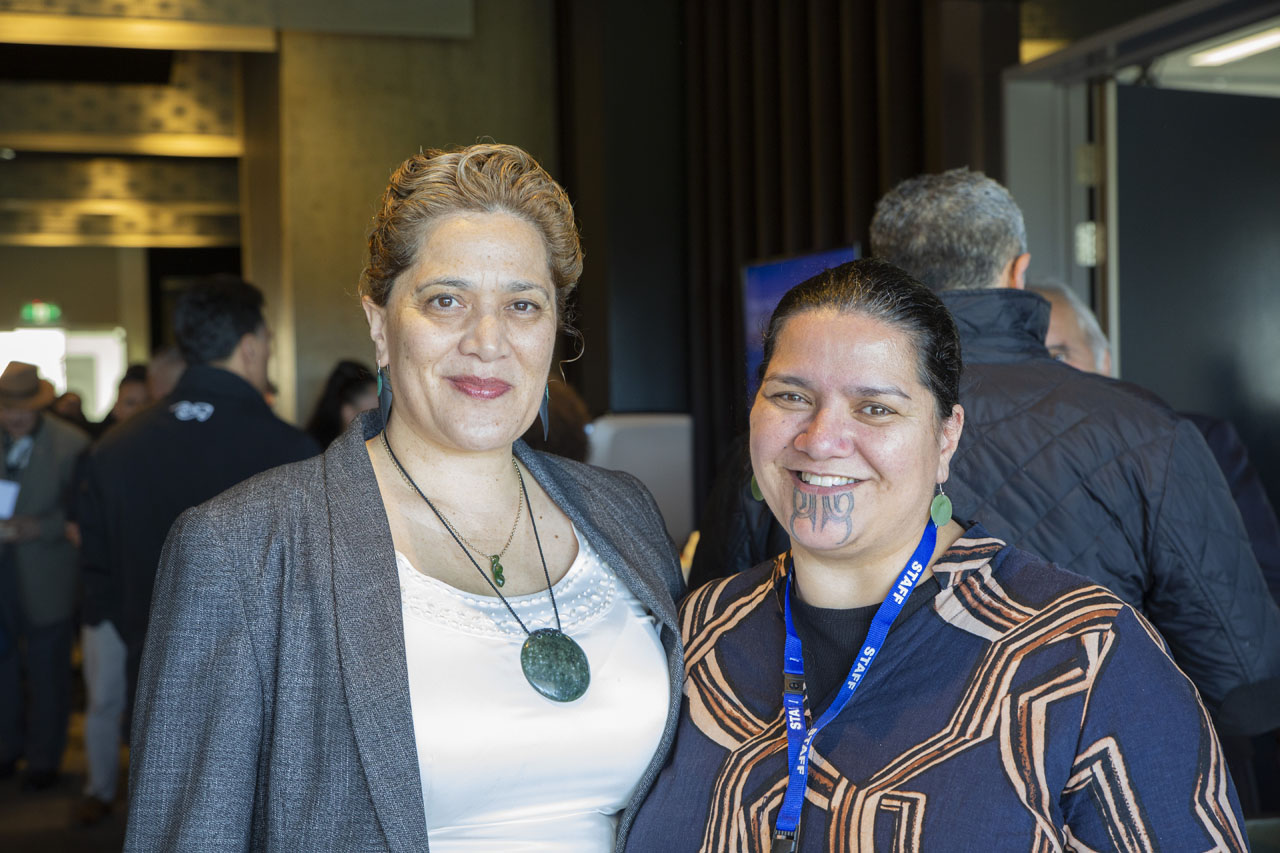
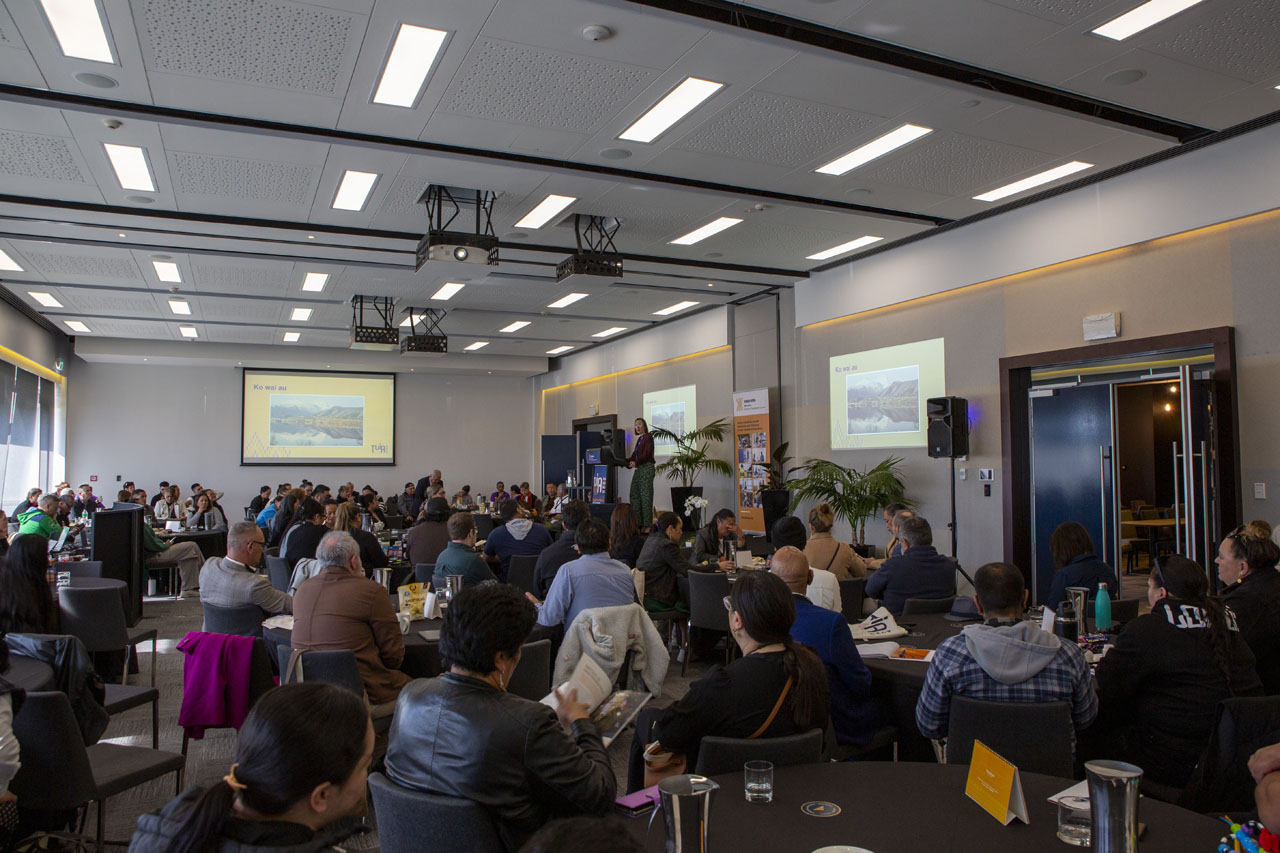
Tuia attendees next heard two different, yet equally important, approaches to finance and were encouraged to step into a space which is often foreign to many.
Anthony Ririnui (Ngāti Ranginui, Ngāi Te Rangi, Ngāti Pūkenga) has been a mainstay of the banking industry in with a career that spans three decades. Supported by a large Tauranga Moana rōpū , he described how he took advantage of an unexpected opportunity to interview for a banking position with ASB. Inspired by former chief executive Ralph Norris and his own whanau and hapū, he overcame initial feelings of isolation through a sense of mission, focusing on helping Māori gain improved access to finance and the financial system.
“I use what I’ve learned to uplift Māori aspirations,” Anthony says. “It’s about listening first, understanding, and acting, letting my values be my compass.”
Rotorua-based Maria Ngawati (Ngāti Hine, Ngāpuhi, Ngāti Porou) described how she helped launch a different programme which uses indigenous practices to provide access to capital. IndigiShare is aimed at using the power of koha to help build economic resilience among Māori.
It has two main products: Te Waharoa, an alternative method of contactless payment which redistributes funds back into the community, and Te Whare Manaaki, a crowdfunding loan platform for Māori and indigenous businesses based on koha.
“The financial system isn’t set up to collectivise money and channel it into one place. IndigiShare uses koha as reciprocity – the practice of giving with no expectation in the knowledge that in time it will come back to you,” Maria said.
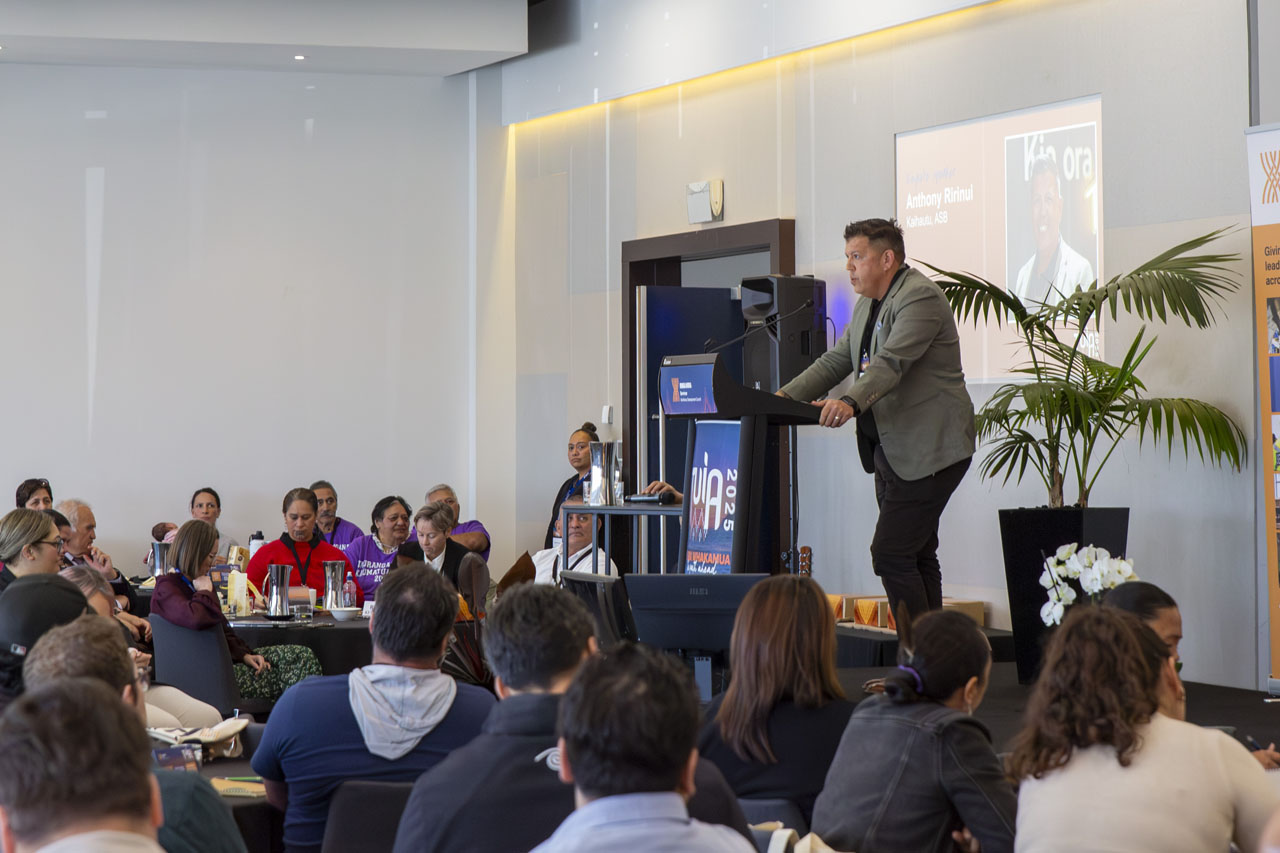
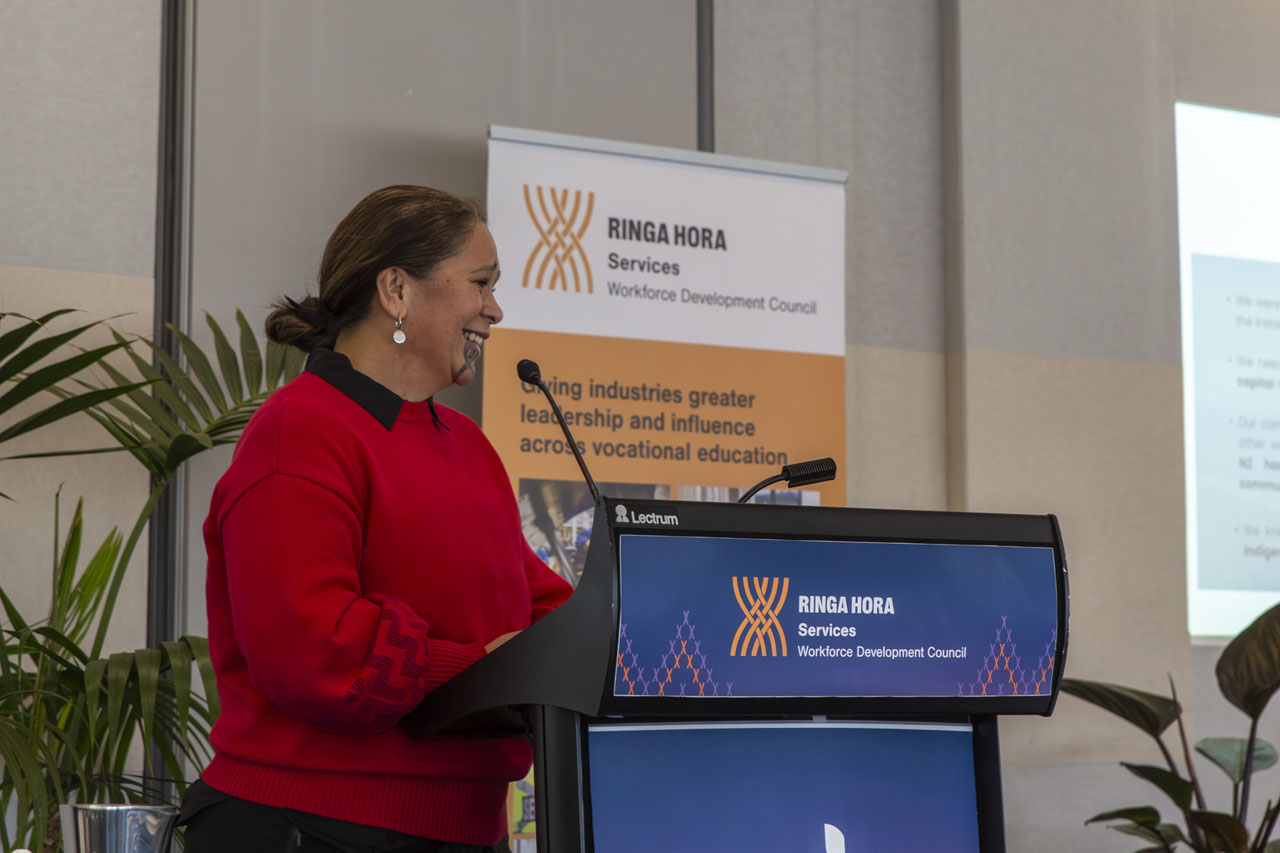
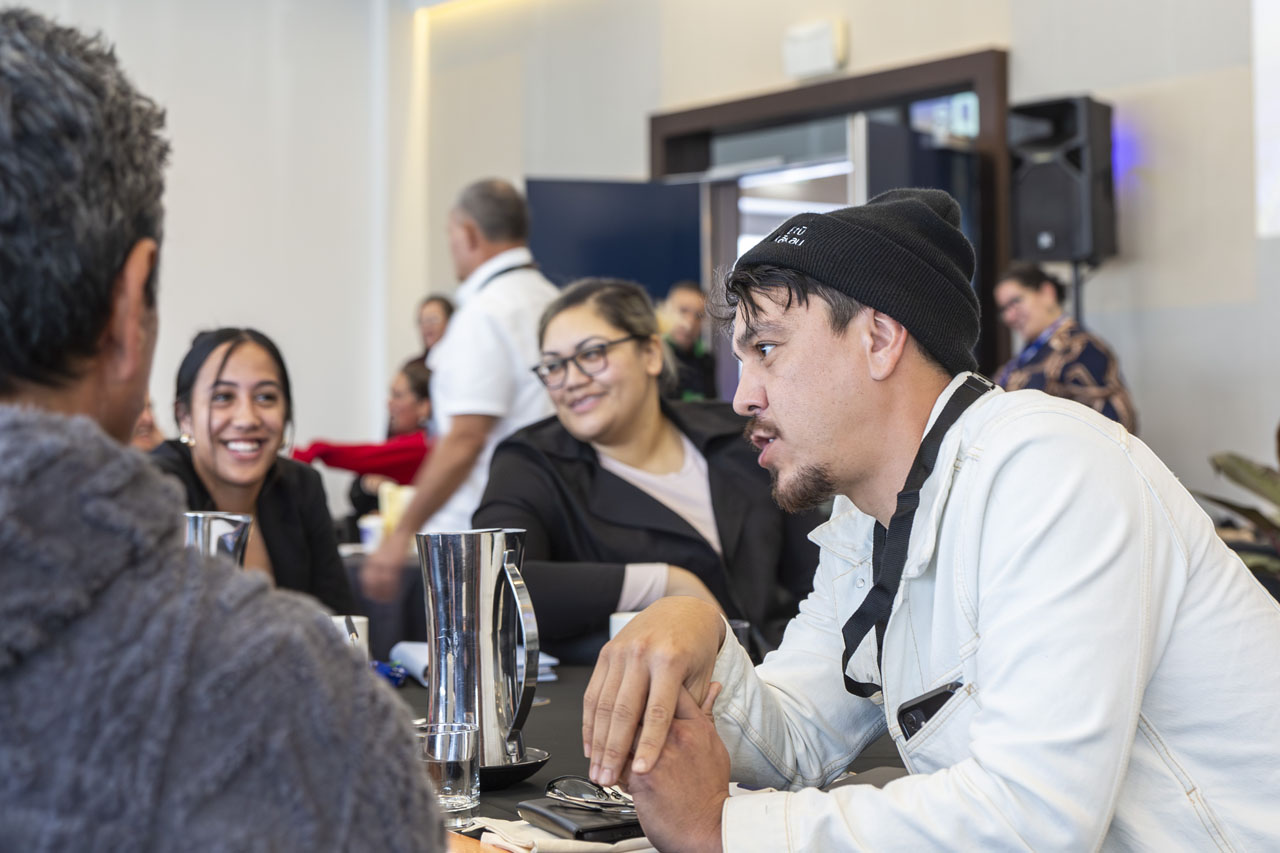
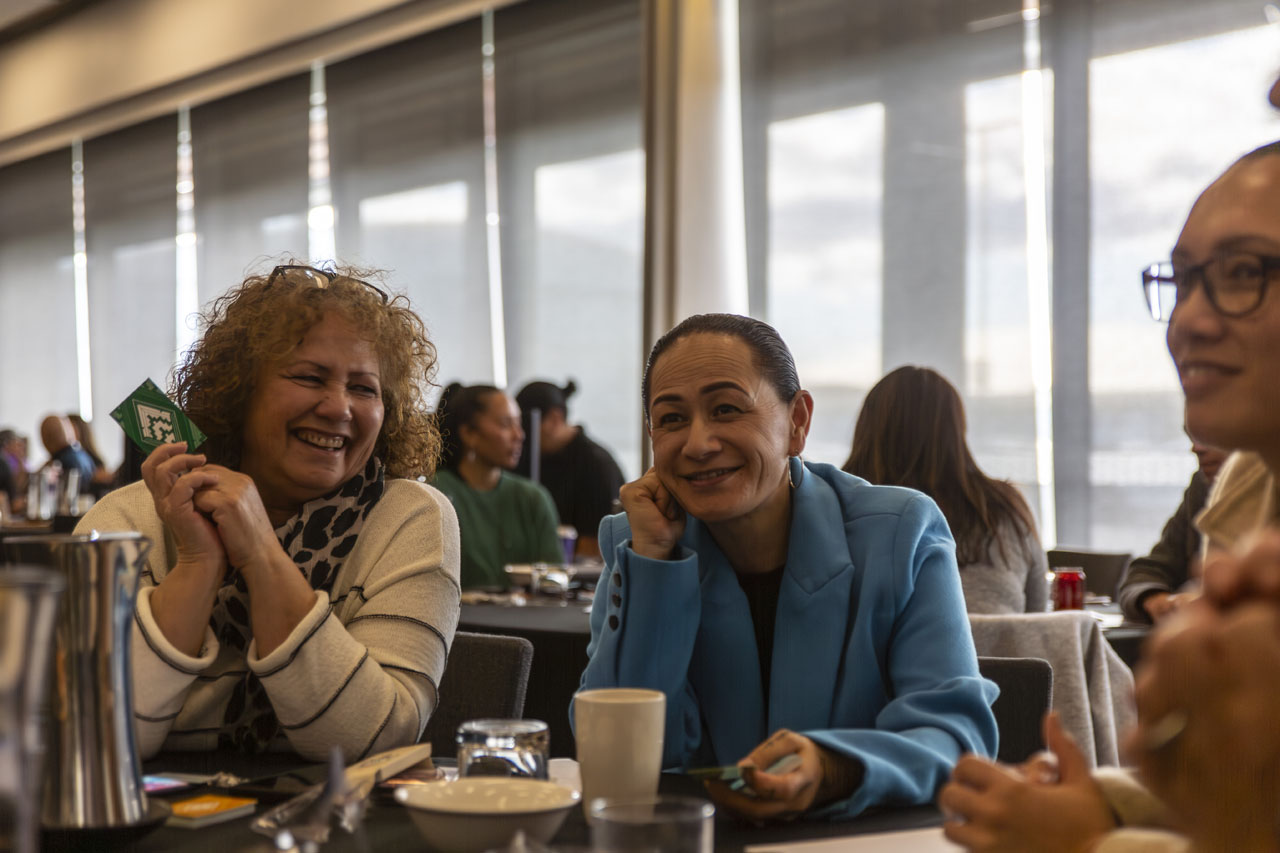
After kai, Tuia heard from Ringa Hora kaimahi about two particular kaupapa. Hinewai Quensell (Te Whakatōhea, Tainui, Raukawa, Tūwharetoa) gave a dynamic presentation about the career pathway framework Mata Ārahi Manomano, and the associated collection of career stories told using this framework, We Be Who We See. This has been widely praised and participants were engrossed in lively conversation as they were introduced to the career pathways conversational cards. Next, Camilla Karehana (Tauranga Moana, Ngāti Awa, Ngāti Ruapani, Ngāti Paoa) and Darin Kauwhata (Ngāpuhi) discussed Tirohia ki Tua, the 2025 Ringa Hora report on the impact of Māori in the Service sector, and encouraged participants to put together their own letter to their mokopuna, imagining the world they want to help leave them.
Then it was the turn of academic Dr Matthew Scobie (Kāi Tahu), Senior Lecturer at University of Canterbury and lead author of the recently published, Amplifying Māori Approaches: The Transformative Potential of Māori economies. He took us on a enlightening journey discussing traditional Māori economies, the ways in which Māori continued to trade according to their own principles during the initial years of European contact, and how colonisation fundamentally changed this.
Matthew talked about how “Indigenous people create our own histories, but not always of our own choosing”, and how Māori and other indigenous cultures can look to thrive according to their own values and practices, rather than adopting the dominant culture.
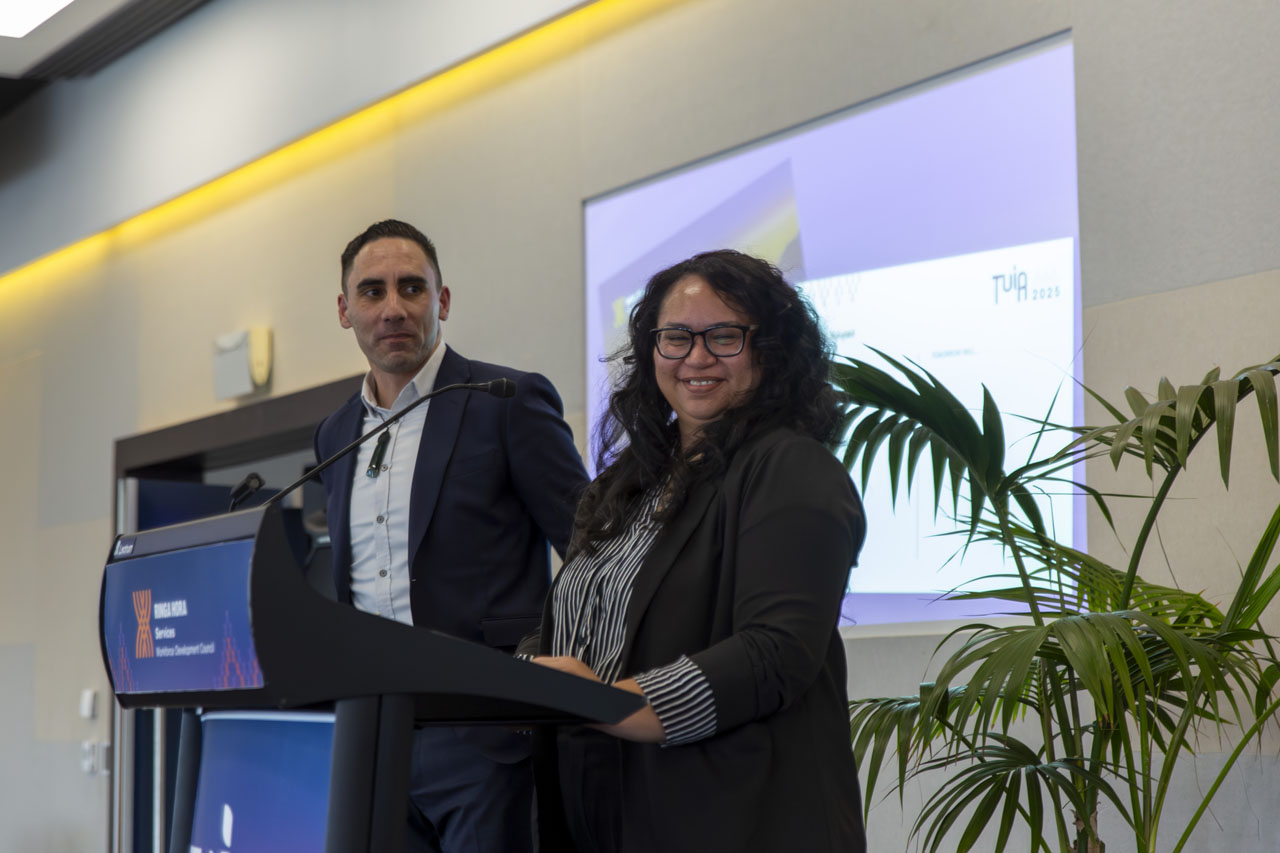
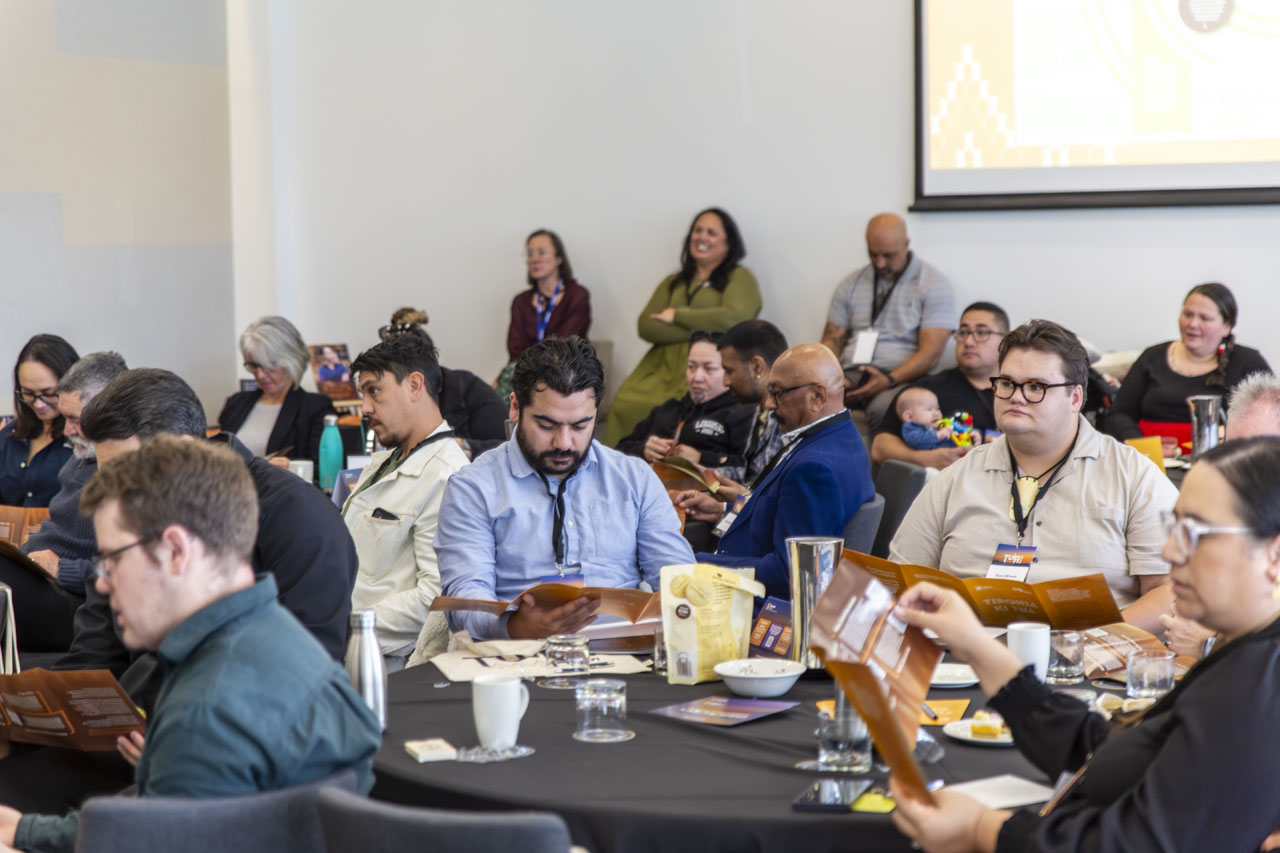
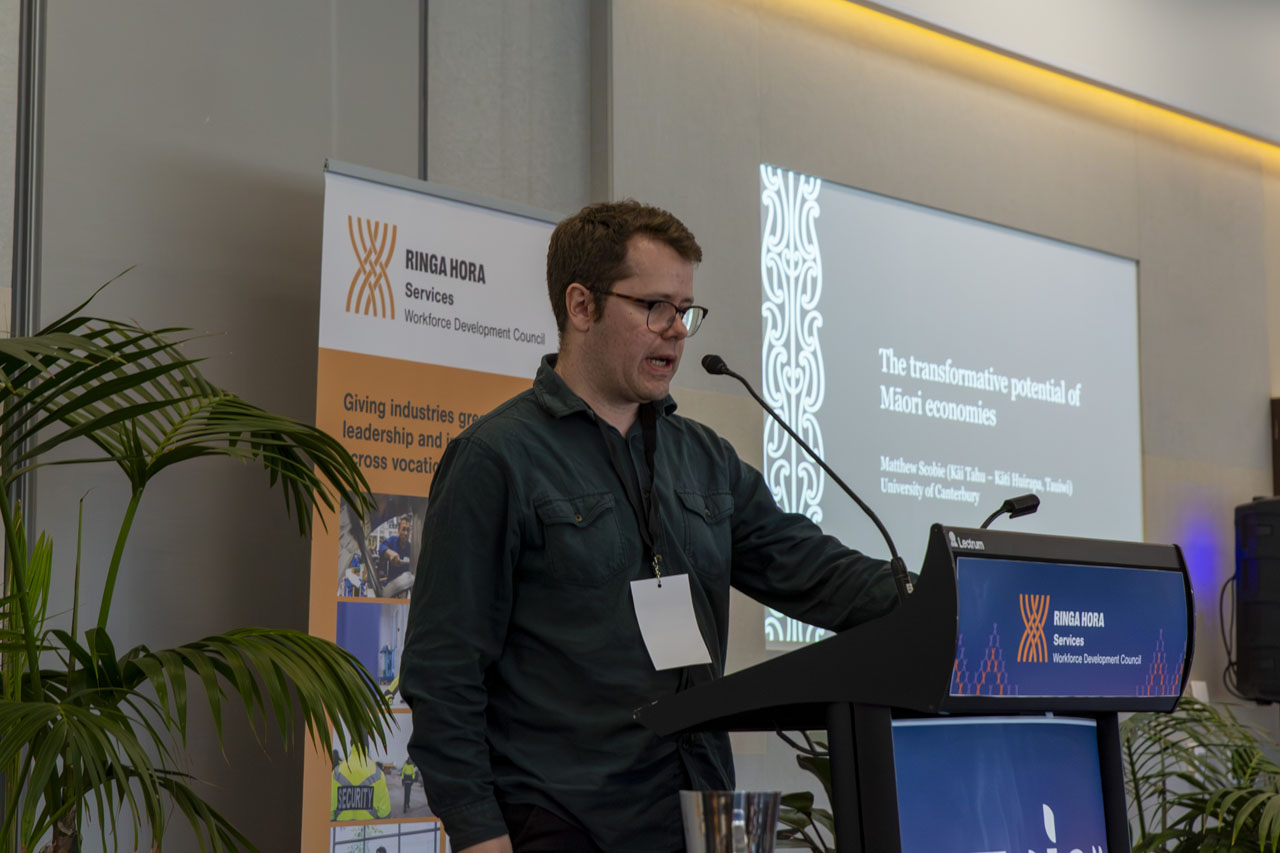
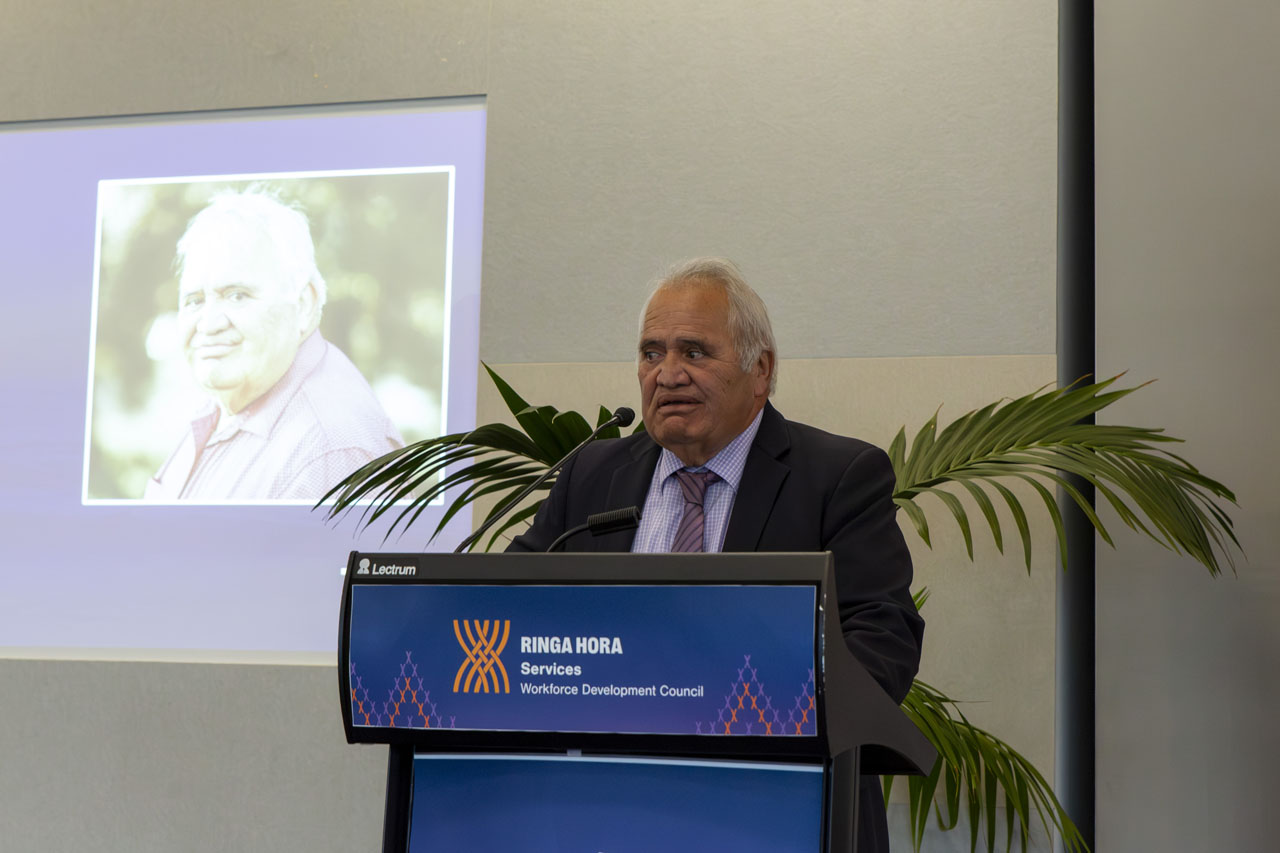
The day ended with an inspirational closing address from our kaumatua of the Workforce Development Councils, Turi Ngatai (Ngāi Te Rangi, Ngāti Ranginui) and his guitar! He urged everyone to focus on today rather than yesterday or tomorrow, and that the most important people we need to answer to are ourselves and the people who came before us. As he said, “The secret of being great is knowing where you come from”.
It was an unforgettable day, expertly guided by our professional, ever-entertaining and returning emcee, Te Hapimana King (Ngā Ruahine, Ngā Rauru, Ngāti Ruanui). Ngā mihi nui to all who attended, we hope the day provided you with many tools and insights to apply to your future aspirations!
